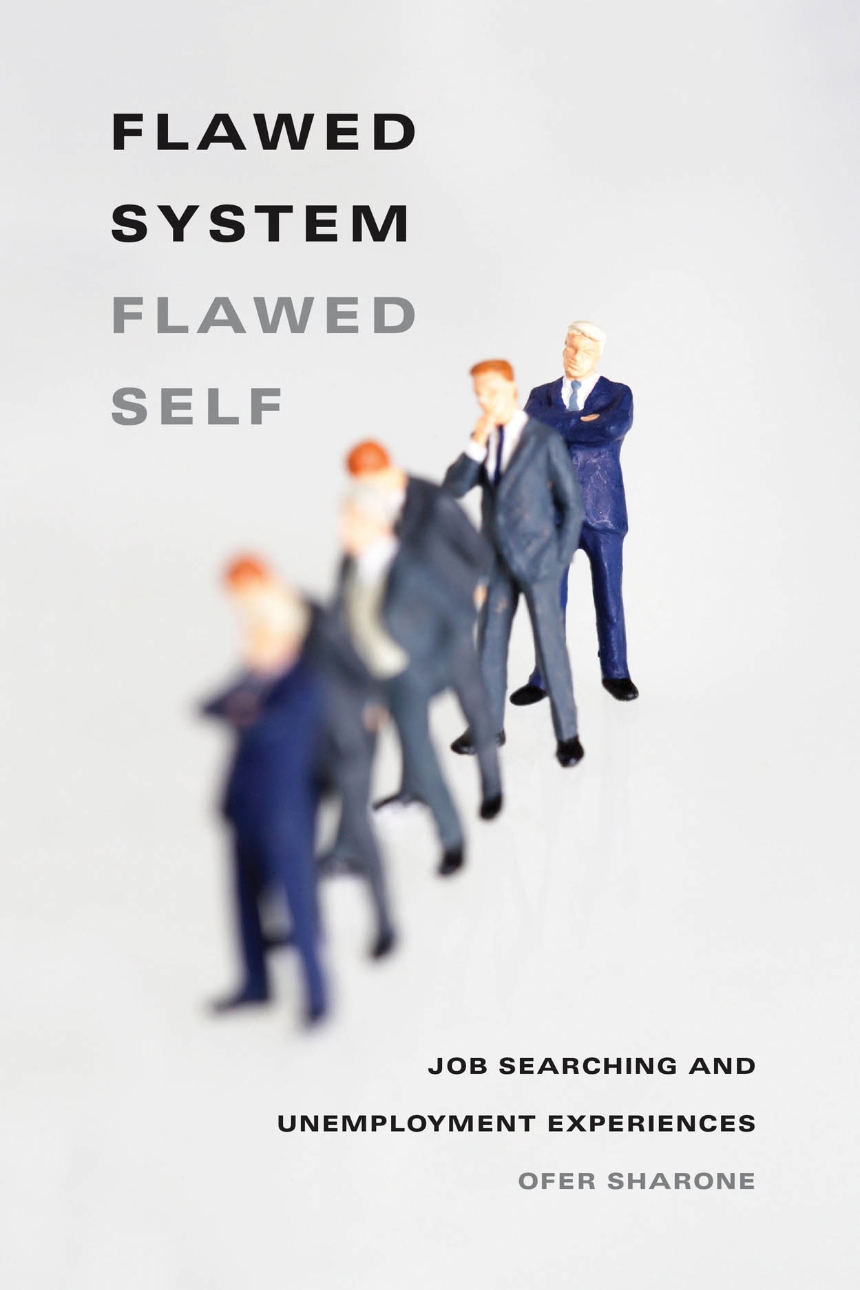Flawed System/Flawed Self
Job Searching and Unemployment Experiences
Flawed System/Flawed Self
Job Searching and Unemployment Experiences
Flawed System/Flawed Self delves beneath these staggering numbers to explore the world of job searching and unemployment across class and nation. Through in-depth interviews and observations at job-search support organizations, Ofer Sharone reveals how different labor-market institutions give rise to job-search games like Israel’s résumé-based “spec games”—which are focused on presenting one’s skills to fit the job—and the “chemistry games” more common in the United States in which job seekers concentrate on presenting the person behind the résumé. By closely examining the specific day-to-day activities and strategies of searching for a job, Sharone develops a theory of the mechanisms that connect objective social structures and subjective experiences in this challenging environment and shows how these different structures can lead to very different experiences of unemployment.
240 pages | 1 line drawing, 3 tables | 6 x 9 | © 2013
Economics and Business: Business--Industry and Labor
Psychology: Counseling and Guidance
Sociology: Occupations, Professions, Work, Social Institutions, Social Organization--Stratification, Mobility
Reviews
Table of Contents
Chapter 1. Introduction: Unemployment Experiences
Chapter 2. The American Chemistry Game
Chapter 3. The Chemistry Game Experience and Self- Blame
Chapter 4. A Cross- National Comparison: The Israeli Specs Game
Chapter 5. The Specs Game Experience and System- Blame
Chapter 6. A Cross- Class Comparison: The Blue- Collar Diligence Game
Chapter 7. Conclusion: Job- Search Games and Unemployment Experiences
Appendix A: Methodology
Appendix B: Notes on Social Games
Notes
References
Index
Awards
ASA Culture Section: Mary Douglas Prize
Honorable Mention
ASA Occupations & Organizations Section: Max Weber Award
Won
ASA Economic Sociology Section: Zelizer Best Book Award
Won
